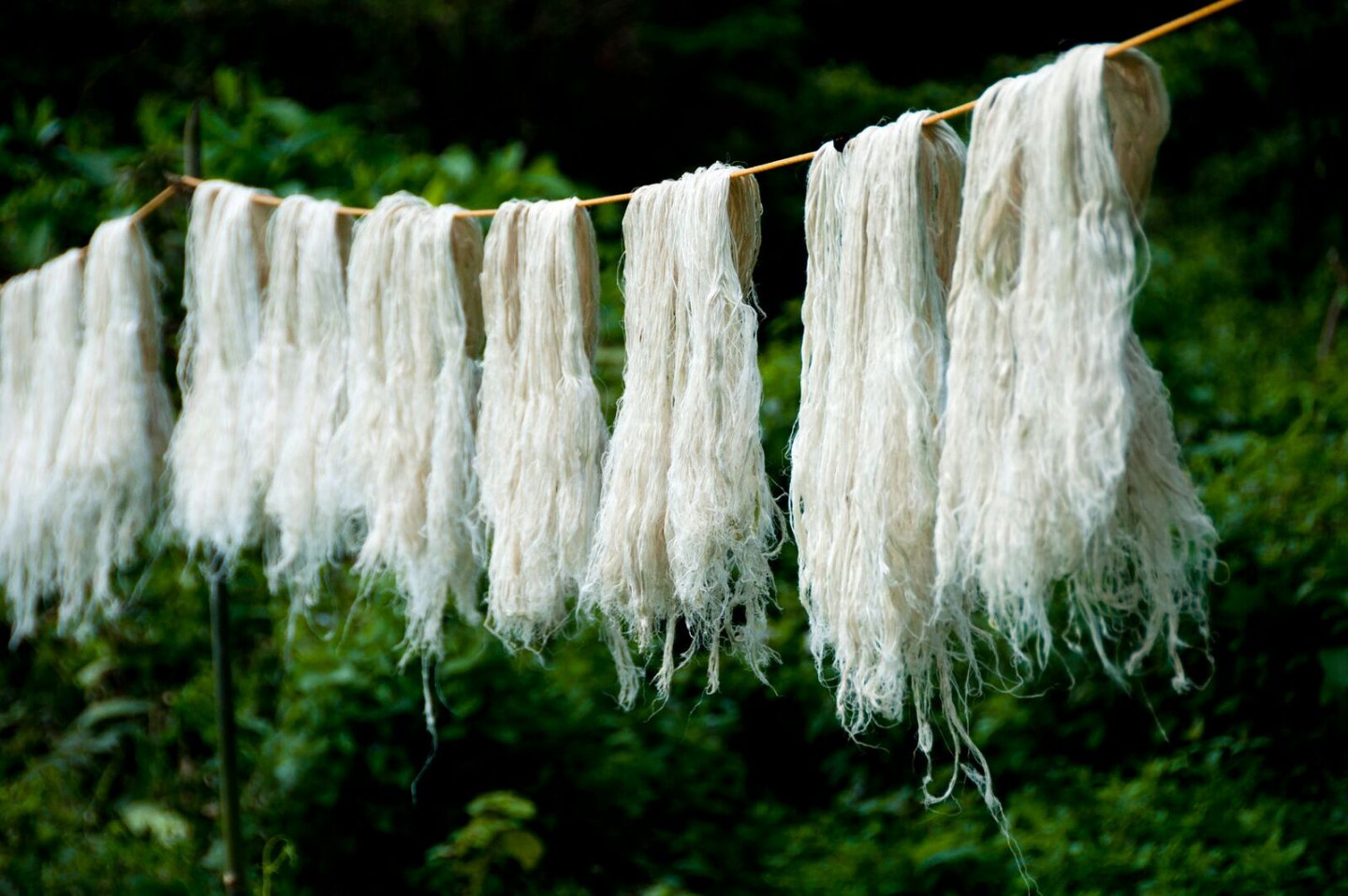London-based design studio Ananas Anam have found a way of transforming pineapple waste into a sustainable vegan textile which can be used for fashion and manufacturing furnishings.
The PETA approved material called Piñatex, is a non-woven substrate which can be used as an alternative to leather without causing environmental harm. Each year, approximately 13 million tonnes of vegetative waste is produced from the global pineapple agricultural sector and Ananas Anam believes that by using the waste from the top 10 countries growing pineapples, they could replace over 50% of global leather.
The waste pineapple matter used to construct Piñatex is a byproduct of the pre-existing agriculture industry in the Philippines and Ananas Anam works closely with pineapple plantations and local farming communities to ensure sustainable and ethical production. Approximately 280 leaves (16 pineapple plants) are needed to create 1 square metre of Piñatex.
The leaves of the plant are processed to extract the fibre which is then manufactured into the substrate. After this, the substrate is shipped to Spain where it is constructed into Piñatex by combining 80% PALF (pineapple leaf fibre) and 20% PLA (polylactic acid- a thermoplastic polymer). The range of dyes used to transform Piñatex into the colourful and metallic textiles (pictured) are GOTS approved and the resins comply with AFIRM standards. As the resins are petroleum-based, research is currently being undertaken to develop biodegradable resins which will take Piñatex to the forefront of material sustainability.
Piñatex is strong, lightweight, water resistant and breathable, and can be stitched, embossed and cut. In addition to conducting research on resin sustainability, Ananas Anam is currently making Piñatex stronger and more resilient with the aim for it to be used as upholstery within the automotive industry.
To view more about Piñatex visit Ananas Anam's website.






